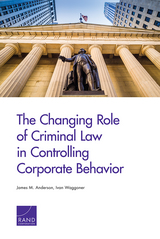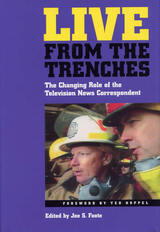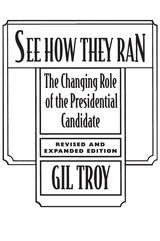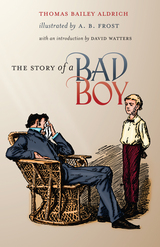

Taiwan's export-led industrial development is often presented as a model of how state intervention promotes growth. Others see the same experience as a model of a private enterprise market at work. This study demonstrates that Taiwan policymakers varied their approach to development as circumstances changed. Export promotion of labor-intensive industries, which predominated in the 1960s, was supplemented by efforts to promote import-substituting heavy industries in the 1970s.
In the early 1980s there was a fundamental change in the economic environment as Taiwan's government reduced its active intervention in the economy and created a foundation for development based on information and other high-technology products. Taiwan's economy continued to prosper in the 1990s because policies and systems changed along with conditions.

From Edward R. Murrow to "Sixty Minutes" and CNN, the television news correspondent has become a fixture of American journalism in the latter half of the twentieth century. The correspondent's role has changed, however, as centralized control, changing technology, "infotainment," and profit margin have influenced the way that television networks operate and television news is reported.
In spite of the flood of literature dealing with the American television networks, the evening anchors, and prime-time personalities, little has been written about the "the foot soldier of network news." Live from the Trenches fills that gap, providing the first examination of television news correspondents and their work, with much of the analysis coming from the correspondents themselves.
The correspondents:
Jim Bittermann, a former ABC Paris correspondent, has been the CNN Paris correspondent since 1996. He received a National News Emmy for his coverage of the 1988 Sudan famine.
Chris Bury, correspondent for "Nightline" since 1993, has covered foreign and domestic stories from Waco to Whitewater.
Michael Murrie, after a dozen years in television news at KSDK in St. Louis, is an associate professor and director of the Telecommunications Master's Program for the Department of Radio-Television at Southern Illinois University at Carbondale.
Roger O'Neil, NBC News Denver bureau chief and correspondent since 1983, was the lead reporter for NBC during the Oklahoma City bombing trial of Timothy McVeigh.
Walter C. Rodgers, bureau chief and correspondent in Jerusalem, joined CNN in 1993 as the Berlin correspondent. Prior to joining CNN, he worked for ABC for twelve years.
Marlene Sanders broke barriers for women throughout her career and has won three Emmies. As a correspondent at ABC News in 1964, she was the first woman to anchor a prime-time network newscast.
George Strait is the primary ABC News correspondent for medical and health news. Among his many awards are the Alfred I. duPont Award and Gold Medal Award from the National Association of Black Journalists.
Ed Turner is CNN's first editor-at-large. Based in Washington, he represents the CNN News Group globally.
Garrick Utley joined CNN in 1997 after thirty years covering more than seventy countries for ABC.

Many Americans feel that presidentials have become inordinately expensive, shallow, and vulgar. The seemingly endless contest even appears to discourage the most suitable candidates from seeking the highest office in the land. Frustrated, we long for the good old days of dignified campaigns and worthy candidates. As Troy's fascinating history demonstrates, however, they never existed.
This definitive volume examines every presidential campaign from 1840 to the present to explore why candidates campaign as they do, and why Americans complain about it. Troy reveals what our presidential campaigns tell us about American democracy itself.
READERS
Browse our collection.
PUBLISHERS
See BiblioVault's publisher services.
STUDENT SERVICES
Files for college accessibility offices.
UChicago Accessibility Resources
home | accessibility | search | about | contact us
BiblioVault ® 2001 - 2024
The University of Chicago Press









